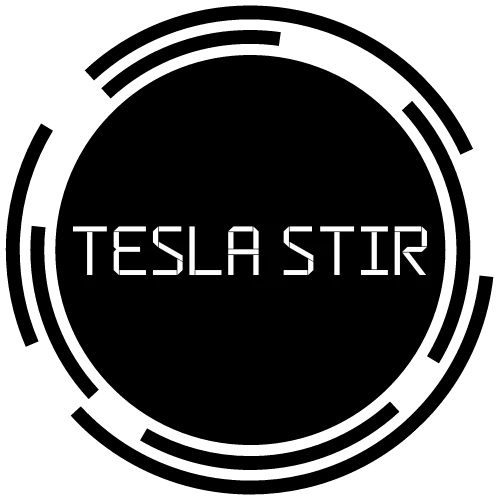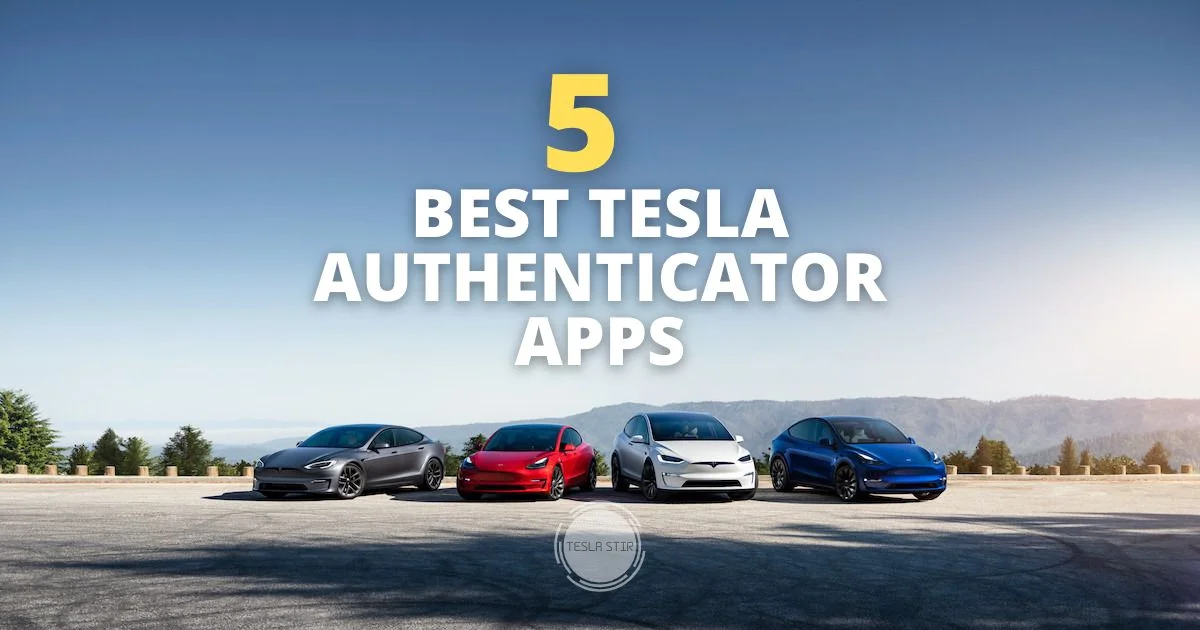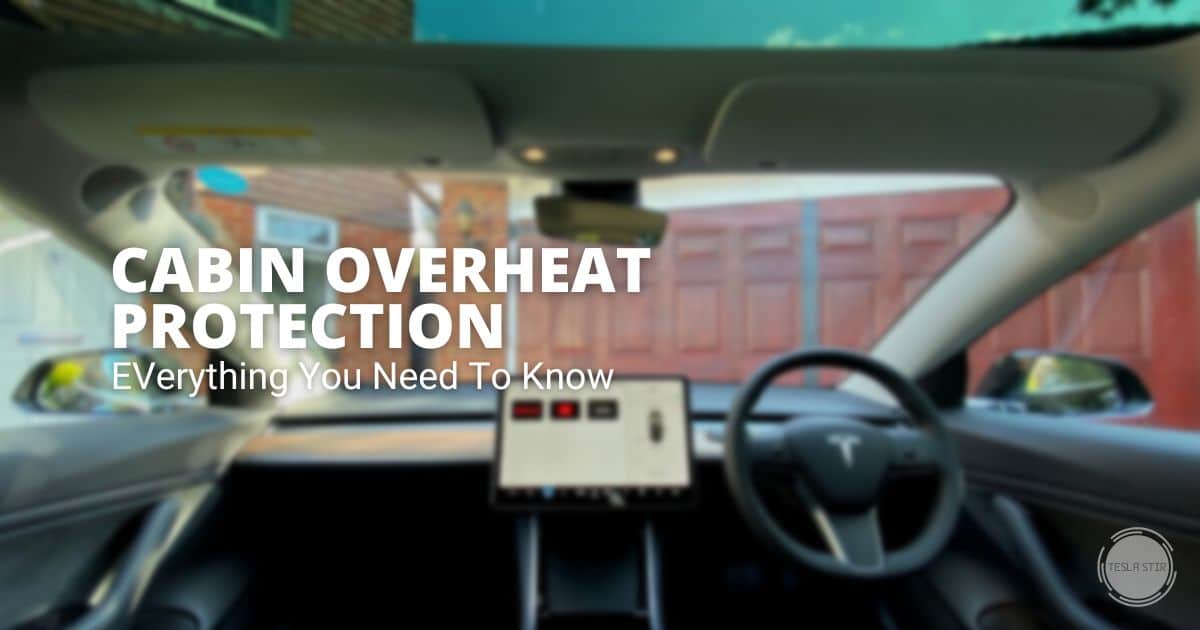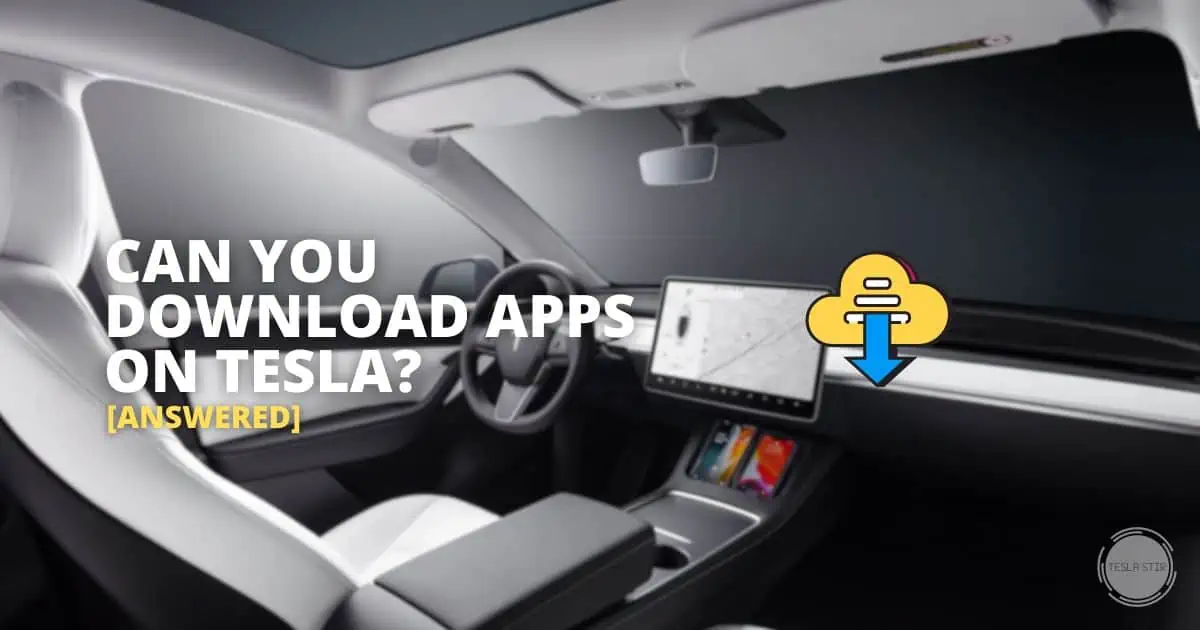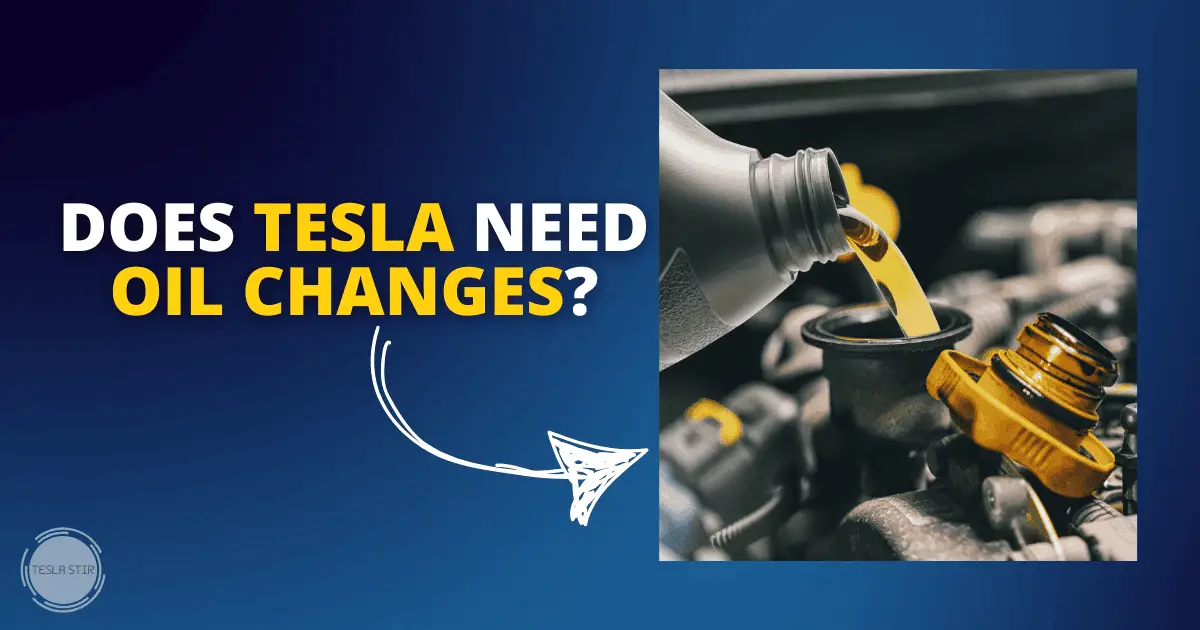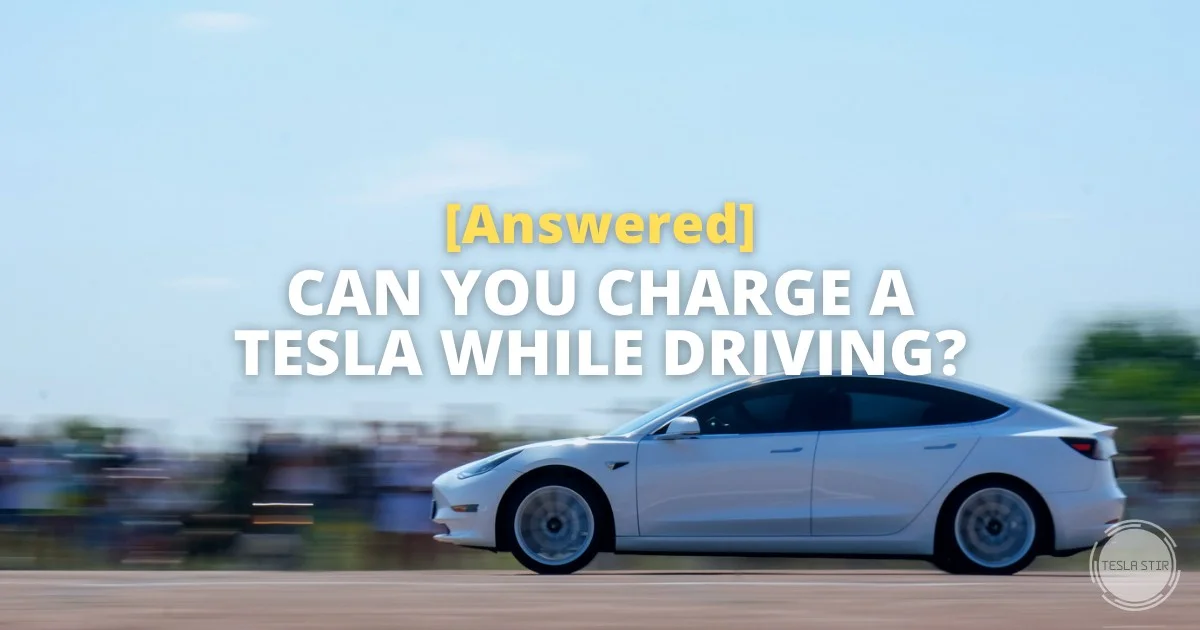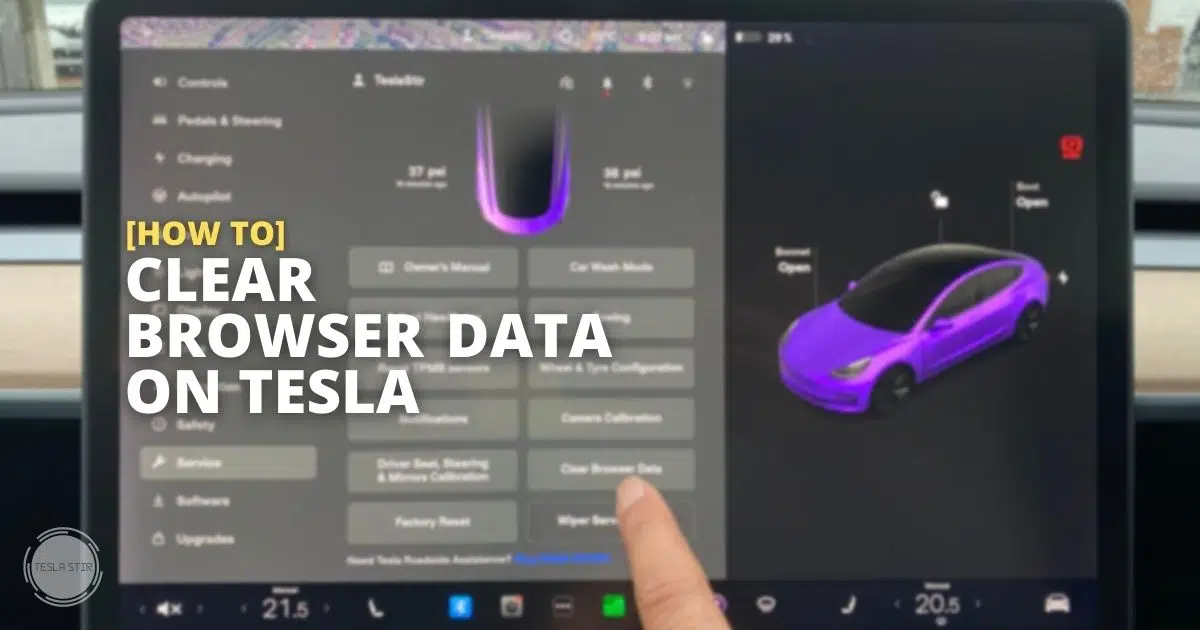Is Tesla a Hybrid or All-Electric Car?
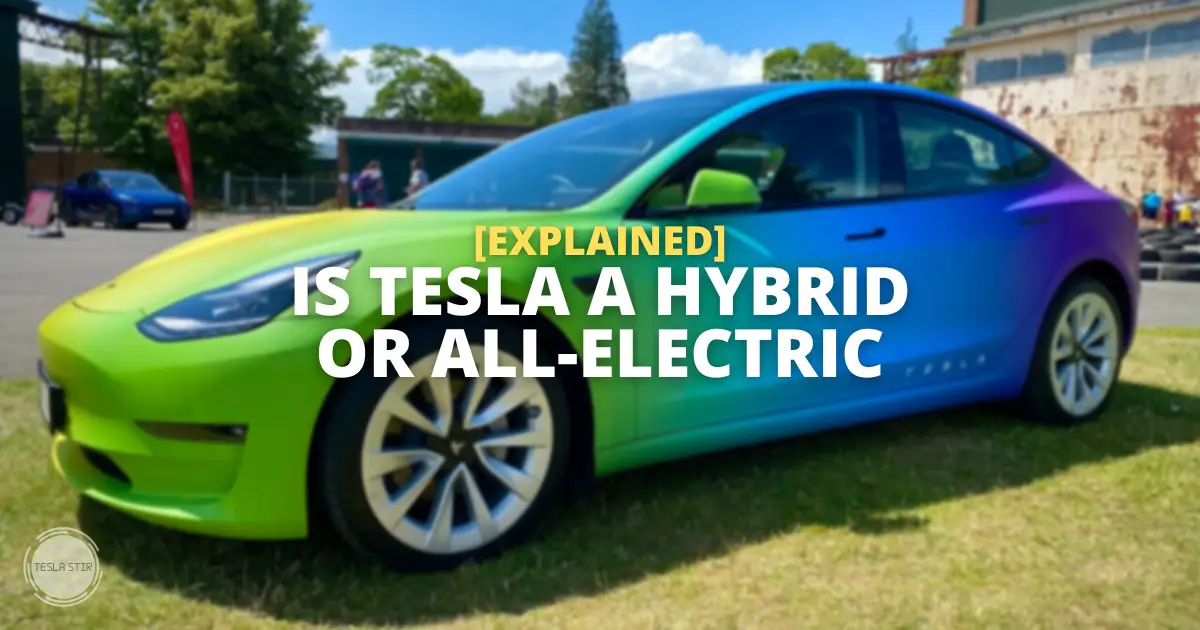
Tesla's electric cars can go from zero to top speed with no emissions, operate almost silently and offer an incredibly smooth ride. But what exactly powers these vehicles?
Many people still wonder if Tesla cars are all-electric vehicles or partly rely on some gasoline power.
So is Tesla a hybrid or all-electric vehicle? The answer is simple: Tesla cars are all-electric vehicles; they are not hybrids.
Tesla does not make hybrid cars, plug-in hybrid cars, or fuel-cell electric cars. All Tesla cars are purely electric and rely solely on electric power to operate.
While there is certainly a lot to know about the technology that lies beneath the hood, understanding the basics about hybrids vs all-electric cars can help make understanding Teslas much more simpler and straightforward.
So strap yourself in as we explore the topic of hybrids and Tesla's fully electric cars in detail.
Defining Hybrid and All-Electric Cars
To clear up any misconceptions, let's understand and differentiate between hybrid and all-electric automobiles.
Hybrid cars pair the classic internal combustion engine with an electric propulsion system to generate enhanced fuel efficiency and decreased emissions.
Alternatively, all-electric vehicles such as Tesla run purely on electricity – petrol or diesel engines are not required.
Zero tailpipe emissions are a given with all-electric vehicles, but even plug-in hybrid electric vehicles (PHEVs) have no harmful gas discharge when in full electric mode.
Let's quickly look at these two separately.
What are Hybrid Vehicles?
Hybrid vehicles are equipped with both a traditional engine and one or more electric motors, enabling them to seamlessly transition between power sources based on the driving environment.
While the electric motor is used to provide power at low speeds and for acceleration, the gasoline engine kicks in as you reach higher speeds. This helps them achieve better fuel efficiency.
Hybrid vehicles also use regenerative braking technology, which captures kinetic energy from braking and sends it back to the battery for storage. Plugin hybrids are similar but can also be charged from an external electric source.
What are All-Electric Vehicles?
All-electric vehicles, also known as Battery Electric Vehicles (BEV), rely exclusively on electricity for propulsion. They use an electric motor powered by a rechargeable high-voltage battery pack to generate power and move the vehicle.
EVs do not have a conventional internal combustion engine (ICE) like a petrol or diesel-powered vehicle. This makes them power efficient and environmentally friendly because they produce zero tailpipe emissions.
EVs also use regenerative braking technology (similar to hybrid vehicles), but since they have no ICE, they need to be charged regularly to remain operational.
Electric cars are also quieter and smoother to drive and have lower operating costs because electricity is generally cheaper than petrol or diesel fuel.
Is Tesla a Hybrid or All-Electric?
Tesla is an all-electric vehicle and not a hybrid. Hybrids rely on a mix of electric and traditional fuel sources. Tesla's entire range of cars is designed to operate on electric power alone, without any internal combustion engine.
While some people may confuse Tesla cars with hybrid cars, there are a few key differences.
In contrast to Tesla's all-electric cars, hybrid vehicles are fitted with an internal combustion engine coupled with a powerful electric motor or battery system. These vehicles are designed to improve fuel efficiency and reduce emissions, but they still rely on fossil fuels to a greater extent.
Tesla's mission, on the other hand, is to promote the adoption of electric power and transition the automotive industry away from fossil fuel dependence.
Hybrid cars have a smaller battery that is charged by the internal combustion engine and regenerative braking. PHEVs can also be topped up plugging in to an electric source.
Tesla cars have a larger battery that is charged by plugging the car into a charging station or a wall outlet. Tesla cars also have regenerative braking, which helps to recharge the battery while driving.
Fun fact: A modified Tesla Model 3 was showcased at IAA Mobility 2021 with a petrol engine as a part of a custom project called Hyper hybrid system (source).
Tesla's Powertrain Technology
Battery Technology
Tesla's cars are powered by high-voltage battery packs, which provide extended driving range and quick charging capabilities. This allows Tesla vehicles to travel impressive distances on a single charge, as demonstrated by the Model S with a 405-mile range (EPA estimates).
Electric Motor
Tesla's motors are compact and lightweight compared to conventional internal combustion engines. An example of this is Tesla's motor, which generates 270 kW of power and weighs just 31.8 kg, while a traditional engine with 140 kW of power would weigh around 180 kg.
The motor technology enables smooth and consistent power output, providing Tesla vehicles with instant torque and impressive acceleration. This, coupled with the battery technology, allows Tesla cars to hit 0-60 mph in just 1.99 seconds (Model S Plaid)!
Battery Pack Thermal Architecture
Tesla's battery pack thermal architecture provides active cooling and heating for the battery pack. This ensures that the batteries perform optimally and deliver fast charging in both hot and cold climates. It also prevents range loss due to extreme temperatures.
Why Tesla Chose All-Electric?
Environmental Impact
Tesla's commitment to producing all-electric vehicles stems from its focus on reducing greenhouse gas emissions and reliance on fossil fuels. By not producing ICE or hybrid vehicles, Tesla avoids including internal combustion engines, which contribute to air pollution.
All-electric vehicles have a smaller carbon footprint when considering the entire lifecycle of the vehicle, including manufacturing, operation, and disposal. This helps Tesla maintain its position as a leader in sustainable transportation.
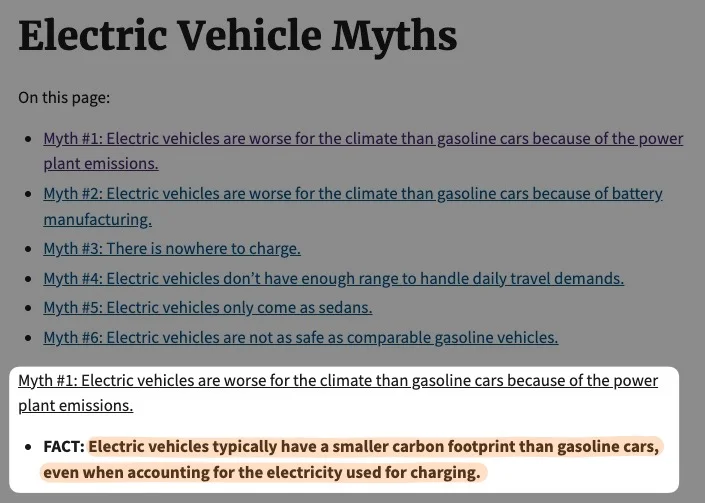
Performance and Efficiency
Electric motors in Tesla vehicles provide instant torque, allowing for quick acceleration and responsive handling. This is an advantage over ICE vehicles, which have a delay between pressing the accelerator and feeling the power.
Electric vehicles are more efficient than traditional cars, as they convert up to 59% of the electricity from the grid to power at the wheels. In contrast, internal combustion engines only convert about 17-21% of fuel energy into usable power. (source)
This means EVs are about 3x more efficient than conventional gasoline cars.
Hybrid vehicles typically have heavier and more complex powertrains, which can impact performance. By focusing solely on all-electric technology, Tesla can optimize its vehicles for maximum efficiency and performance.
Tesla's Vehicle Lineup
The Tesla vehicle lineup includes several all-electric models that boast impressive range, power, and convenience features. Let's briefly look at each one of them.
Model S
Model S is Tesla's flagship sedan that offers exceptional range, power, and features. It can travel up to 405 miles on a single charge (EPA range estimates) and accelerate 0 to 60 mph in just 1.99 seconds for the Plaid variant.
Model X
Model X is a full-size all-electric SUV popular for its falcon-wing doors. Model X can accommodate up to 7 passengers and has a range of up to 348 miles on a single charge (EPA estimates). The Plaid version can go from 0 to 60 mph in just 2.5 seconds.
Model 3
Model 3 is Tesla's most affordable compact sedan. It has a range of up to 374 miles on a single charge, according to EPA estimates. It offers impressive range, power, and features at a much lower price tag than the Model S and X.
The Model 3 has a minimalist interior with a large touchscreen display that controls almost all of the car's functions. The Performance trim of M3 can go from 0 to 60 mph in just 3.1 seconds.
Model Y
Model Y is the latest addition to Tesla's range of EVs completing the S3XY collection. Model Y is Tesla's 100% electric crossover SUV and shares many features with the Model 3 but provides added space and versatility. It comes with a range of up to 331 miles on a single charge. The Performance version of the car can go from 0 to 60 mph in just 3.5 seconds.
Roadster
The Tesla Roadster is a sports car that is all-electric. It has a range of up to 620 miles on a single charge, according to Tesla's estimates. The Roadster has a sleek design with a removable glass roof that stores in the trunk. The car can go from 0 to 60 mph in just 1.9 seconds, making it one of the fastest cars in the world.
Summary
Tesla is devoted to sustainability, striving to reduce greenhouse gas emissions through its clean energy initiatives and advanced vehicle design. By offering dependable alternate transportation methods, they are paving the way for a healthier future.
So, to answer your question of whether Tesla cars are hybrid or not: they’re all-electric vehicles that run solely on electricity and do not require gasoline like hybrid vehicles.
